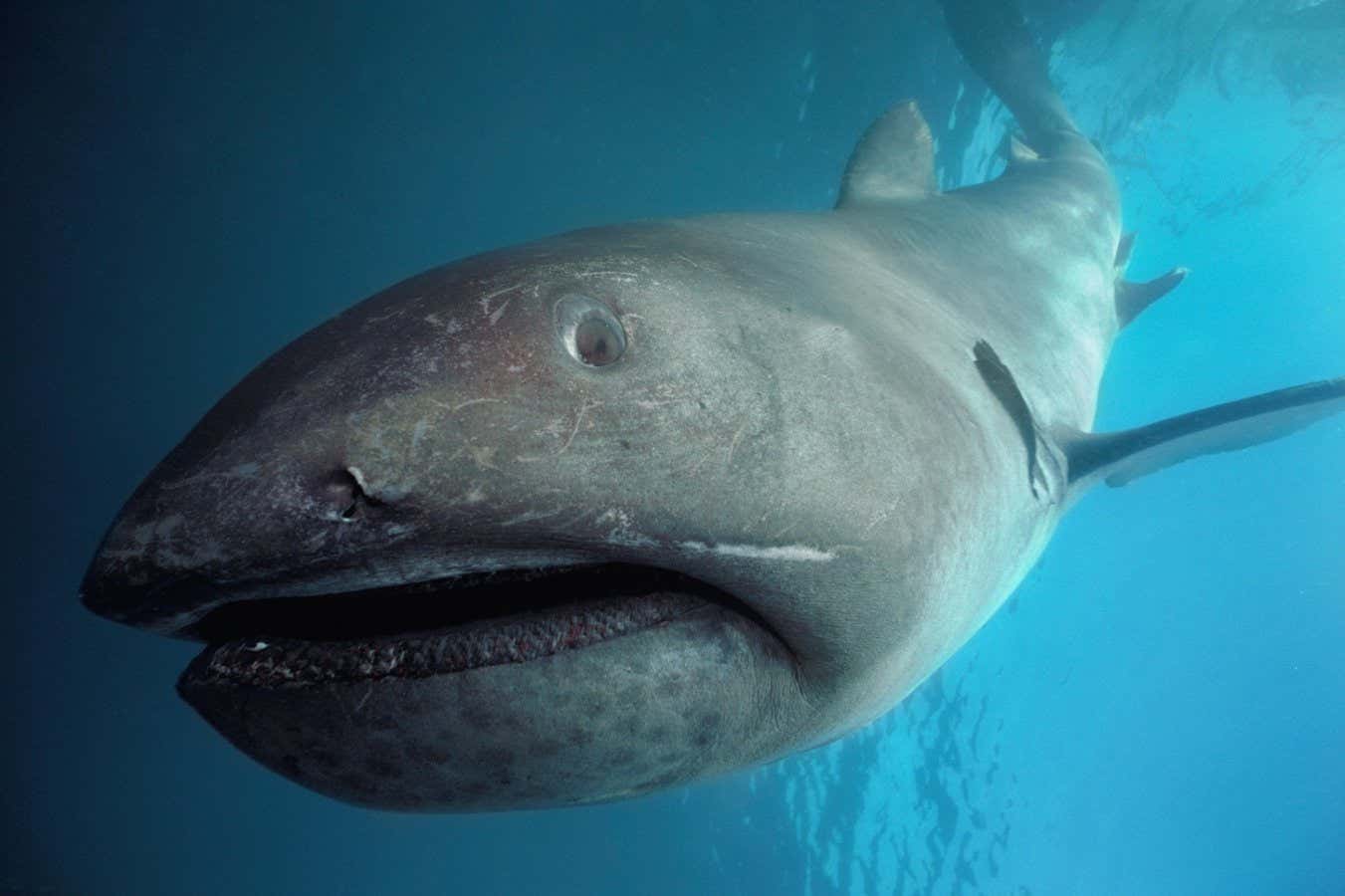

Megamouth sharks are rarely seen by humans
BIOSPHOTO / Alamy
A megamouth shark that stranded in the Philippines is the first pregnant individual ever recorded in this rare species.
The finding confirms that megamouths (Megachasma pelagios) are ovoviviparous: their eggs develop inside the mother’s body and she gives birth to live young.
Discovered by scientists in 1976, megamouths are filter-feeding sharks that live in the deep sea. Fewer than 120 individuals have ever been captured or observed.
A 5.6-metre-long female stranded in the Philippines’ Aurora province on 14 November. One pup was found alongside her while six more fetuses remained inside her body.

A stranded megamouth shark and fetuses
Florabel Apalla thru Annabelle Lapitan of LGU-Dipaculao
The first may have been born because sharks “usually expel their pups or eggs when they are captured or stranded” due to stress, says AA Yaptinchay at Marine Wildlife Watch of the Philippines, who oversaw the necropsies.
Yaptinchay was surprised that seven fetuses, measuring between 165 and 183.5 centimetres long, would fit in the female’s abdomen.
Although the reason for the stranding is unclear, bycatch is unlikely, says Yaptinchay, because the sea was too choppy for fishers to go out that day and the mother showed no signs of injuries caused by fishing equipment.
Genetic testing could reveal whether the specimens are genetically distinct to other populations globally and if one litter of pups can have several different fathers. The fetuses will be displayed in the National Museum of the Philippines.
The small litter size raises conservation concerns, says Yaptinchay. “Now we know they just have seven pups, compared to whale sharks which have over 300 or tuna which have millions,” he says.
The Philippines is a megamouth hotspot, alongside Taiwan and Japan, but individuals are usually found when they are caught in fishing nets or stranded. Yaptinchay would like to understand why they are so prone to conflict with fishing gear and wants improved fishery regulation and conservation approaches for sharks in the region.
Topics: